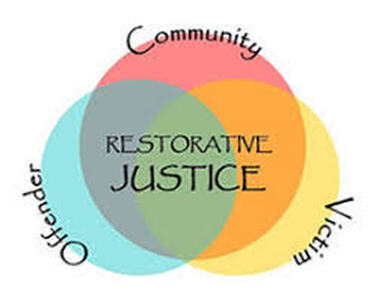 I was taught to be a nice girl. You know, nice and polite and quiet. It didn’t stick, thank God. I’m connected, but not nice. I genuinely care about the people in my life. I pray for people in checkout lines while I wait. Really. I’ll also tell the people in my life the hard truth, like they need to end that broken relationship. Nice is surface. Connection is deep. Polite isn’t my gig. Caring is. I’ll show up at your house with dinner after you’ve had a baby, tell you all the gruesome facts about postpartum, laugh with you, cry with you, and go out to purchase you some hemorrhoid spray if you need it. Ms. Manners would have me leave a nice note with food at the door. This full postpartum disclosure is definitely not polite by my mother’s standards. I talk about everything, mixed company or not. By the way, what is mixed company nowadays, anyhow? I AM NOT QUIET. Outspoken? Without question. I am usually the loudest person in a room. I’m a preacher for goodness sakes! Stop telling me to be quiet unless someone is sleeping. I could have been that nice girl, maybe, but nice was too small and tidy a cage. I tried occasionally to fit my big personality into that cage, but it never fit. It always burst out. . *** Nancy Pelosi was probably taught to be a nice girl too. Yes, she grew up attending political rallies and learning the importance of social justice. Yet as the youngest of seven and the only daughter, who attended an all girls Catholic school, I’m certain she was exposed to the cult of nice. Ripping up Trump’s state of the union speech on prime time TV was not “nice.” It was not polite. Ironically, it was a very quiet LOUD action. It was angry. Here are some facts (not alternative facts, but real facts):
Trump and Limbaugh rip up humans. Nancy Pelosi ripped up a speech. That’s it. Her anger was contained. She was silent. She did not interrupt the state of the union. Nevertheless, her actions were labeled as childish, bitter, and classless by the same people who have embraced the hateful speech of the man who holds the highest office in the nation. Is this because they are hypocrites? Clearly. But it’s also because as a culture we do not tolerate angry women. Why are we not applauding Nancy Pelosi for keeping her anger in check for as long as she did in this hateful new political landscape? How did she keep from screaming against a bigot who practices cruel, sexism, racism, and nationalism? We should applaud her for appropriately and publicly revealing her anger toward not only a president, but also a senate that has embraced a corrupt president. If she were a man we would have applauded her. Men are allowed to prophesy, angrily. If Nancy Pelosi had a penis, she would have been celebrated as a powerful leader instead of a childish, bitter woman. But Nancy Pelosi isn’t bitter at men, she’s angry at injustice. And she should be. Jesus wants her to be. We just don’t know how to handle anger in those we have deemed inhuman and undeserving: people of color, women, LGBTQ+, immigrants, and others. White men, on the other hand, are allowed to be angry. You need look no further than Brett Kavanaugh’s rage or Lindsey Graham's theatrics during the confirmation hearings. There is also the POTUS who tweetstorms his fury daily. But Nancy Pelosi’s controlled, visible anger at the State of the Union riled the patriarchy because America can’t make room for women’s unabashed anger in our chauvinist culture. America likes nice girls, not powerful, bold women who show up ready to fight. *** Like Nancy, as a deeply connected christian, I cannot ignore the plight of others. Whole groups of people in our country are struggling with basic human rights such as health care, food, shelter, and education, due to the inhumane policies of our current administration. Nice can turn away from their suffering, but Nancy can’t, and I can’t. As a minister confronted daily with the needs of the least of God’s children, during an administration that dismisses and often mocks God’s beloved people, my anger rightfully rises. It rises because I am a disciple of Jesus. May yours rise as well.
0 Comments
 My high school dean silenced me as a 17 year old girl with the exact words, “We already know what you think.” I had gathered a group of female classmates to tell her that the physics teacher was raping our classmate. She was annoyed with me, troublemaker that I am. You can learn more of my story in this blog. When the truth of my allegations came out 30 years later, after an extensive investigation by a law firm, she lost her job at my high school. There had been a culture of abuse, the law firm determined, and the dean had been complicit, so the school let her go.abbyhenrich.weebly.com/community/archives/10-2017 She was immediately hired at a prestigious college. What is the way forward after #MeToo? Should my dean’s career be ruined indefinitely for what she said to me 25 years ago and for her complicity in a culture of abuse and her willful denial? Or should she be forgiven and allowed to continue her work in education? These questions are important: How we heal as individuals and as a society is the significant work before us in this new #MeToo world. Let me begin by telling you what is NOT helpful in this healing process:
What IS helpful? I can only answer this question from my very individual perspective. Recently I have been learning about restorative justice as an alternative to our criminal justice system. At the heart of restorative justice is the involvement of the victim. If someone were to ask me what would restore justice to me after the #MeToo experience I endured at Nichols, I believe I have a clear answer:
That’s it. Face to face listening and an apology. From my perspective this is a simple request. Would it be emotionally exhausting? Yes. Would they be incredibly brave to do it? Yes. Without question. Would it be worth it? I deeply believe it would be. There is no way forward without reconciliation. Reconciliation takes telling and listening. It takes acknowledging pain, asking for forgiveness and offering forgiveness. It takes facing the past together and looking forward to a future. It takes collectively struggling for a new way. I also wonder if I were to come face to face with my dean and headmaster, if we could grieve together for the people we were, trapped in a terrible system. They might have been as trapped as I was and in need of just as much healing. I refuse to accept that they are morally bankrupt humans. Instead, I would guess that both are deeply troubled by what happened and desire a way forward. If I were granted an opportunity for restorative justice with my dean, how would that change my perception of her new position? If she was brave enough to engage with me in authentic conversation and listen with an open heart to my story, I would speak positively about her new beginning. I would remind others that we cannot judge someone solely on their past, and that together, as a community, we must move forward into this new #MeToo world bravely and honestly. Only this way can we create a world where everyone is safe. This is the work of our community. It is not the work of an individual alone in therapy who is told too often to forgive, move on, and get over it. I do not know how this can happen without reconciliation. As the victim, I feel powerless. I am too aware that some do not want to hear me call myself a victim nor admit that I feel powerless, but there it is, my truth. I am too worn out to do anymore of this work on my own. Who will the champion be? |
 RSS Feed
RSS Feed